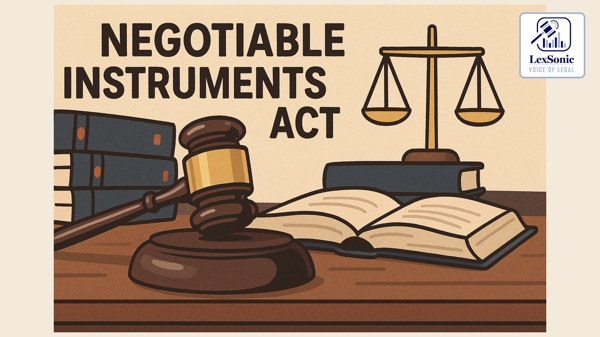Setting Aside High Court's Order: Partnership Liability Under NI Act.
19 May 2025
Partnership >> Business & Commercial Law | Negotiable Instruments Act >> Criminal Law
This appeal successfully challenged a Karnataka High Court order from September 23, 2023. That order, issued in response to a Section 482 CrPC petition, had quashed proceedings against Respondent-Accused No. 4 in a complaint filed under Section 200 CrPC for an offense under Section 138 of the Negotiable Instruments Act, 1881 (NI Act).
The appellant had initiated a complaint against M/s AVS Constructions (Accused No. 1), a partnership firm, and its partners (Accused No. 2, 3, and 4) after twelve cheques, each for Rs. 50,00,000/-, totaling Rs. 6,00,00,000/-, were dishonored due to 'stop payment' instructions. These cheques were issued by the firm for the refund of sale consideration and signed by Accused No. 2, the authorized signatory. After serving a statutory notice, a complaint under Section 200 CrPC was filed, leading to the issuance of summons to the accused after cognizance was taken.

Respondent-Accused No. 4, S. Srinivasan, subsequently filed a petition under Section 482 CrPC, arguing that proceedings against him should cease as he had retired from the firm on April 1, 2015. However, the appellant countered that the statutory requirements under Sections 32, 62, 63, and 72 of the Indian Partnership Act, 1932 (Partnership Act), regarding partner retirement and public notice, had not been met. Crucially, Form-A from the Registrar of Firms dated August 27, 2020, still listed the respondent as a partner. The entry reflecting his retirement was made on October 20, 2020, subsequent to the cheque issuance and legal notice. Furthermore, the trial court had previously dismissed the respondent's discharge application under Section 239 CrPC on similar grounds.
The High Court, however, allowed the respondent's petition, reasoning that the cheques were not signed by him but by Accused No. 2 in an individual capacity, and that the respondent had ceased to be a partner when the cheques were issued.
The appellate court found the High Court's decision unsustainable. It emphasized that simply executing a retirement deed or agreement among partners is insufficient to discharge a partner's liability unless proper entry of the retirement is recorded with the Registrar of Firms and public notice is given as mandated by Sections 63 and 72 of the Partnership Act. The court also noted that the respondent's liability was not discharged merely because another partner signed the cheques, especially since the complaint explicitly stated the respondent's involvement in the firm's day-to-day affairs and his presence when the cheques were signed. These were considered mixed questions of fact and law requiring evidence, which should not have been decided under Section 482 CrPC.
Consequently, the appeal was allowed, and the High Court's order was set aside. The proceedings before the ACMM, Bengaluru, in CC No. 17788/2020, were restored, with directions for the trial court to proceed according to law. The court clarified that its observations were limited to the jurisdictional sphere of the High Court and would not prejudice the merits of the case during the trial.
Section 138, Negotiable Instruments Act - 1881
Negotiable Instruments Act, 1881
Section 32, Indian Partnership Act - 1932
Section 62, Indian Partnership Act - 1932
Section 63, Indian Partnership Act - 1932
Section 72, Indian Partnership Act - 1932
